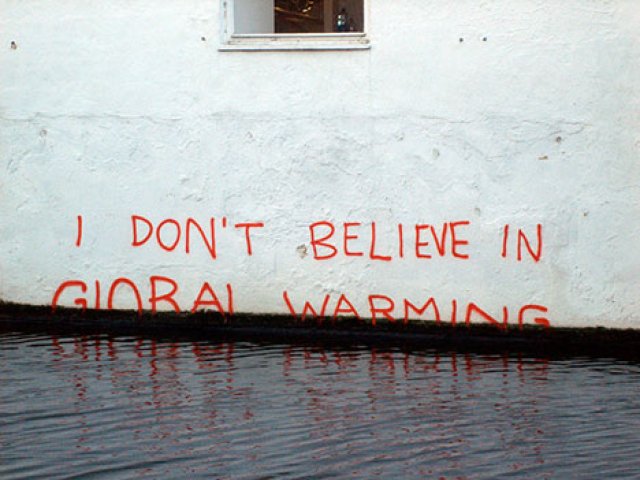
In Russia, a seven-week-long heatwave has caused giant firestorms to break out across more than 114,000 hectares of the country. At least 48 people have died and more than 400 new fires broke out on August 4 alone, the Kyiv Post said that day.
Russian President Dmitri Medvedev said on July 30 that “practically everything is burning” in 14 regions of the country, Time said on August 2.
In the past, Medvedev has not seemed too concerned about climate change. At last year’s Copenhagen climate conference he bluntly announced that Russia would increase its emissions.
But with the abnormal weather predicted to continue until mid-August, CNN.com reported that he said: “What's happening with the planet’s climate right now needs to be a wake-up call to all of us, meaning all heads of state, all heads of social organisations, in order to take a more energetic approach to countering the global changes to the climate.”
But it’s not just Russia that’s in trouble — the whole world is in the grip of an unprecedented heat wave. Temperature records across the northern hemisphere are being broken.
Dangerous climate change is already here. Unless we quickly limit greenhouse gases and decarbonise our economies, it’s going to get worse.
A survey of the climate news from just the past few weeks is staggering.
The past decade was the hottest ever, said the National Oceanic and Atmospheric Administration’s State of the Climate 2009 report, which was released on July 28.
“Each of the last three decades has been much warmer than the decade before”, said the report.
The past 12 months were also the hottest ever. McClatchydc.com said on July 27 that NASA scientists had reported “the average global temperature was higher over the past 12 months than during any other 12-month period in history”.
The record came “despite the recent minimum in solar activity, which should have had a cooling effect on Earth”.
The past month was the hottest July ever according to satellite data, said Climateprogress.org on August 3. This was the fifth month of record temperatures in a row.
On July 28, Climateprogress.org said other satellite data indicated the last week of July could also have been the hottest week ever.
Meanwhile, Polar Science Centre figures suggest the Arctic ice volume is on its way to a record low. It said: “The monthly average Arctic Sea Ice Volume for May 2010 was 19,000 km³, the lowest May volume over the 1979-2010 period, 42% below the 1979 maximum and 32% below the 1979-2009 May average.”
In 2010, a record number of countries have recorded their highest ever temperatures.
It is clear we need a climate policy that recognises we face an emergency situation. We need an emergency response.
We are venturing close to a climate-tipping point of no return. Our energy systems, food systems and transport systems need to be restructured — not just tweaked or slowly adjusted.
Given the urgency, it is clear that market-based responses to the climate crisis cannot do the job.
Sustainable alternatives do exist. But if Australia’s economy is going to be restructured in the short time remaining, there is only one serious option: the government must act.
Private interests serve private interests. We cannot allow the response to the emergency to be left in the hands of those driven by corporate greed, the very thing that has caused the crisis and has worked to block action.
Direct public investment must be the driving force behind the transition.
The Zero Carbon Australia Stationary Energy Plan (ZCA) was launched in Melbourne on July 14. The plan is a collaboration between climate activists, research group Beyond Zero Emissions (BZE) and the Melbourne Energy Institute.
It shows Australia could move to 100% renewable energy within 10 years. The green technology needed is already commercially available.
The cost of the plan: about one cup of coffee per person per day for 10 years. The cost of not acting: unthinkable.
Melbourne Energy Institute Director Professor Mike Sandiford said: “The technology required is already available. The cost [of the plan] is not prohibitive.
“What is lacking is the political will and social drive to make it happen.”
In a June article on the ABC Drum website, BZE’s Pablo Brait and Leigh Ewbank said a real climate policy would emphasise “the rapid deployment of renewable energy technologies and the development of a 21st century grid infrastructure”.
It is the government that must step up to ensure this happens. The ZCA spells out what is needed and how much it will cost. A public plan would also boost jobs — creating work tied to sustainable industries.
Brait and Ewbank concluded: “The litmus test for credible climate policy will be whether or not it encourages the rapid deployment of renewable energy in Australia, not simply impose a price on carbon and hope for the best.
“Unlike emissions-trading schemes with offset provisions that delay action on renewable energy, the ZCA plan shows that we can start work today.”
Comments
trishwildfire replied on Permalink